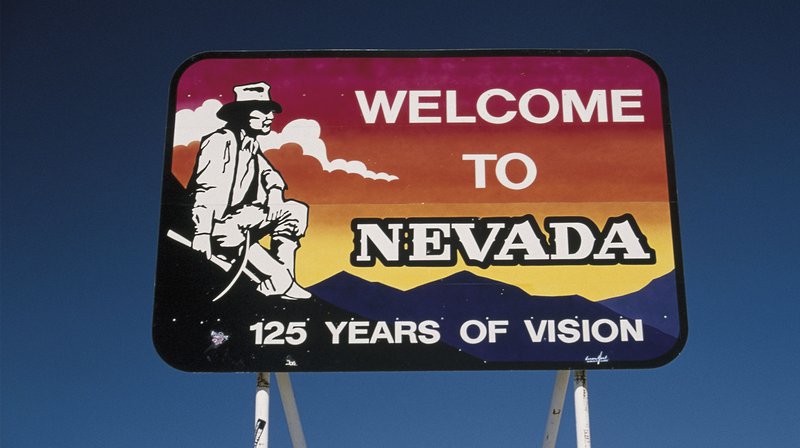Nevada Takes a Chance on Pro-Blockchain Legislation

Known as the Silver State, Nevada has a long established reputation for relaxed laws pertaining legalized gambling, corporate asset protection and business privacy. Now, in a move certain to be closely watched by other U.S. states, Nevada Senate Bill 398 was recently signed by the Nevada Governor Brian Sandoval, and officially passed into law under the state’s Uniform Electronic Transactions Act.
The bill was introduced and sponsored by Republican Senator Ben Kieckhefer. After being amended twice, the legislation passed by a vote of 41 to 0.
This landmark bill provides guidelines related to the use of blockchain technology. Nevada thus becomes the the first U.S. state to approve legislation blocking local government entities from taxing, licensing and imposing other requirements on blockchain use.
According to the Senate Committee on Judiciary record document, Kieckhefer states, “Local governments cannot impose taxes, fees or other requirements relating to the use of blockchain or smart contracts.” He goes on to note that the bill will help Nevada keep pace with technological advancements, providing “a legal framework for people using a blockchain to not do so in a legal gray area.”
Said Kieckhefer: “Senate Bill 398 is an offshoot of several efforts I worked on in the 2015-2016 Interim to ensure Nevada has an environment welcoming and inclusive of startups. Entrepreneurs have been working on a package of legislation to ensure that, instead of just incentivizing large companies to relocate to the State, we have policies incentivizing them and smaller companies to start and grow here.”
The bill clarified the definition of blockchain technology, espousing it as “an electronic record created by the use of a decentralized method by multiple parties to verify and store a digital record of transactions which is secured by the use of a cryptographic hash of previous transaction information.”
Smart contracts are also defined as an electronic record, verified by the use of a blockchain: “A smart contract, record or signature may not be denied legal effect or enforceability solely because a blockchain was used to create, store or verify the smart contract, record or signature.”
Most notably, electronic signatures recorded on the blockchain are now protected: “If a law requires a signature, submission of a blockchain which electronically contains the signature or verifies the intent of a person to provide the signature satisfies the law,” per the bill’s decree.
Two other U.S. states have taken similar steps to recognize blockchains as an appropriate data store, with seven in total codifying legislation pertaining to blockchains.
A number of other U.S. states have recognized, or are in the process of recognizing, blockchains as an appropriate data store. The most similar bill is from the neighboring state of Arizona, which passed House Bill 2417 into law toward the end of March. Unlike Nevada’s, however, this bill falls short of providing restrictions on taxes and licensing.
A number of Nevada-based business leaders offered strong support and testimony for the bill, including Allison Clift-Jennings, founder of Filament, a Reno-based firm that is fostering the application of IoT and blockchain technology for industrial use.
“Having Nevada pass this legislation puts the state at an advantage, in that it clearly and succinctly outlines not so much what the state will do, but what the state will not do, when it comes to blockchain regulation,” Clift-Jennings said to Bitcoin Magazine.
“With a technology as powerful and new as this, it’s important for both established companies and startups alike to know how their jurisdiction will treat this new technology. We’re very happy with how it turned out, and appreciate Senator Kieckhefer and Clift & Co. for their efforts in getting this passed unanimously in both the Assembly and the Senate.”
Jaron Lukasiewicz, vice-president of the Las Vegas-based construction consultancy Rhodes Corporation and an advisor to SONM (the decentralized supercomputing network) told Bitcoin Magazine that it’s “fantastic” to see Nevada taking the initiative in providing a welcoming environment for blockchain businesses in the state. “Nevada’s actions will help attract entrepreneurs in this growing industry to the state, hopefully promoting a high concentration of blockchain talent here.”
Lukasiewicz believes it has been easy for governments to develop a negative bias toward bitcoin and other cryptocurrencies for a variety of reasons. He says that blockchain technology, however, seems to be moving in a different direction. “Most regulators on every level of government appear to understand the importance of blockchain technology and are working to create an environment that attract startups in the space.”
To read the full senate bill, click here.
The post Nevada Takes a Chance on Pro-Blockchain Legislation appeared first on Bitcoin Magazine.


